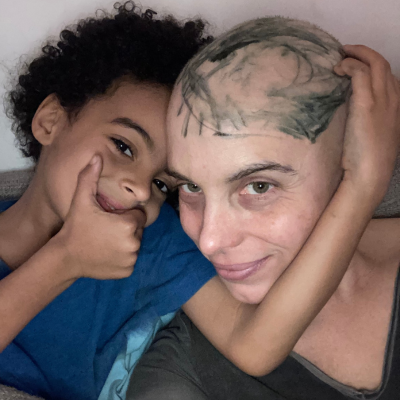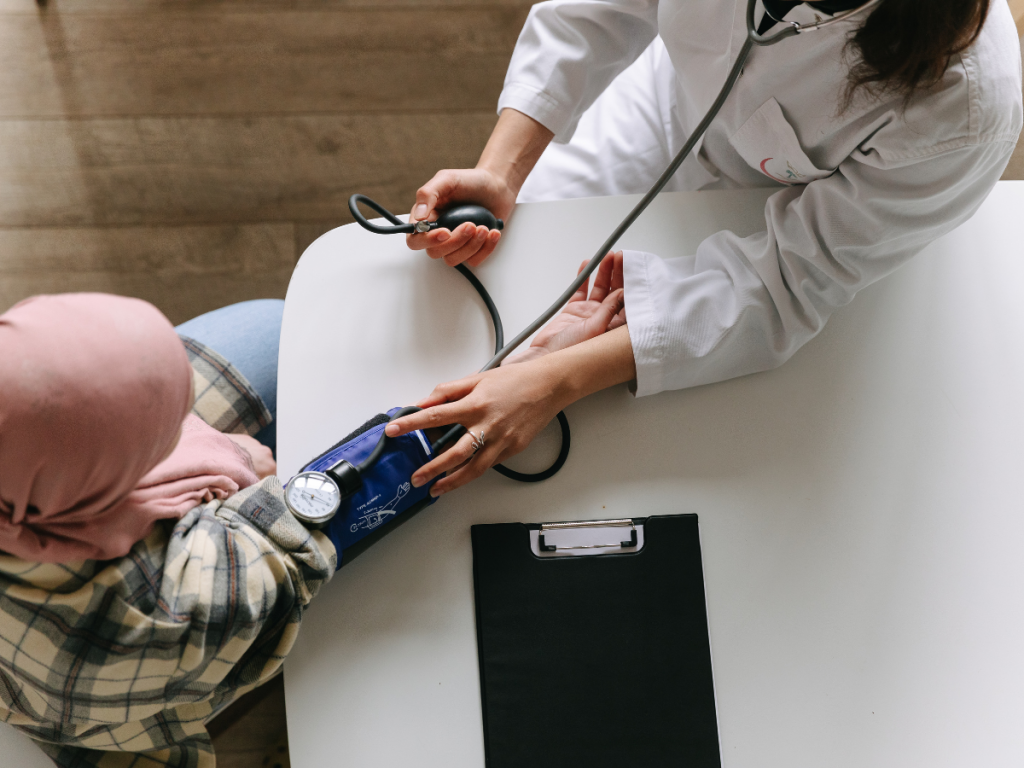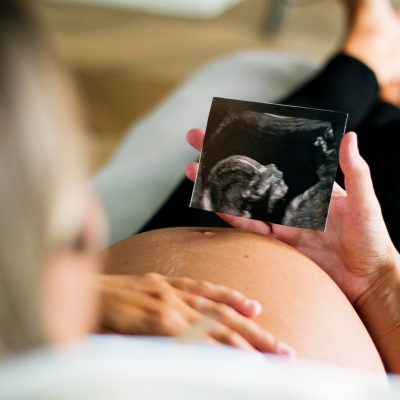I received my cancer diagnosis on an app. Let that sink in for a minute. My hospital network sent me a text message and I clicked on the link that unveiled my biopsy results: invasive ductal carcinoma. Terror rattled every cell in my body. My children played innocently in the living room. Looking at them, my vision blurred.
I had to walk around with this sense of fear and cloudiness for weeks before my first appointment with a surgical oncologist. My partner and I were bursting with questions. Like most parents, the very first one I asked was about my children: Had I fed my baby cancer through my breast milk? I had been nursing my second child when I first discovered the lump that was, in fact, a tumor. “No,” the doctor said, confident to the point of arrogance, which is what you want in a surgeon. My trembling faded ever so slightly.
Second question: Am I going to die? The doctor smiled wryly and threw up her hands. “Well, we’re all going to die,” she replied. Her sarcasm wasn’t funny, but surgeons aren’t known for their sense of humor. I forgave her quickly because she referred to me not once, but twice, as “young” — statistically true in the world of cancer, where the average age of diagnosis for the most common cancers is in the 60s and 70s. As a woman in my 40s, it’s not often I hear myself described as young. With cancer, you take your wins where you can get them.
Once she explained my diagnosis — stage one, hormone positive breast cancer — and outlined my surgical options, I asked perhaps the hardest question of all: What do I tell my kids? They were 6 and 1 at the time. For this, the oncologist directed me to the non-profit world, where the bulk of cancer counseling and support resides.
Talking to your kids about cancer
Aimee Sax, a social worker and the California Support Program Manager at Sharsheret, a national Jewish breast and ovarian cancer organization, says that as parents, we are the experts on our kids’ needs — and should respond in kind. “There are no hard and fast rules about parenting with cancer,” Sax says. “One conversation is not enough. Kids need to know that, so keep opening that door.”
Every family will have the cancer conversation differently, depending on the diagnosis and treatment plan, as well as the age and temperament of their children. In our family, we had separate conversations at each new phase of my treatment with our first grader so as not to overwhelm him with the information all at once. For other kids, the opposite tactic might be more soothing, and a complete overview of everything to come over the next year might be best.
After each conversation, when we asked our oldest if he had any questions, he would always answer literally: “Yes, can I go play now?” He’s our deeply introverted, neurodivergent kid. Emotional processing for him would not be conversational, not for a while, at least. Instead, he sat at the table and drew for hours, often the same picture over and over again. Gentle, repeated hugs and some quiet time to think were what he needed most, so we gave that to him.
The toddler was a different story. He’s a tiny canon of a kid, fast and solid. Language was just burgeoning as a new tool in his life, and he used every bit of it to let us know how he felt. One of his first sentences was a heartbreaking “Mommy go the doctor,” as that’s what I was likely doing every time I left the house. “Mommy all better?” he would ask after my double mastectomy, and when I shook my head and said, “Not yet,” he would grab a pillow before barreling into me for a hug, inserting the soft cushion between our bodies to shield my still-healing chest.
You’re going to need to learn how to ask for help
To maintain sanity and even joy in the lives of your children throughout your cancer treatment, you need to put the oxygen mask on yourself first, as the air safety analogy goes.
The key to this is asking for help. I was not very good at this particular brand of vulnerability when I was first diagnosed, but my learning curve in that department was fast. It had to be if my family was going to survive this ordeal intact. One of the most useful lessons I learned in navigating cancer with small children was to assign a good point person. This is someone who can organize the meal train and/or the childcare calendar so you don’t waste precious mental energy on logistics. Or this can be the person who fields the calls and texts of people wanting updates after your surgery or latest round of chemotherapy when you don’t have the emotional bandwidth to respond to even the most well-meaning messages.
You can choose one person to handle all of these tasks or select different people with specific skill sets for each job; either way, I strongly recommend this person not be your spouse, if you have one, as they are likely as emotionally fried as you are and equally in need of a break.
The more specific you can be in asking for help, the better. We received a lot of delicious home-cooked meals in the first weeks after surgery, but as my treatment progressed to chemo, our needs shifted. I hated the taste of food, and my partner was exhausted from fighting both kids to eat the same dinner. So, we told our food-point person that gift cards to our preferred meal delivery app would actually help us the most. That way, my partner and kids could indulge in their respective comfort foods, and I could more easily select something nice and bland for myself.
Again, this kind of request can feel so uncomfortable for many of us. I felt incredibly guilty and even indebted to all the amazing people helping us. One of our friends was so generous and loving that they paid their housekeeper to clean our home every two weeks during my chemo. How could I possibly repay that?
As a retired clergy with more than 30 years of experience, the Rev. Rebecca Hickok is no stranger to life’s tumult and the care it requires. Her wise words set me straight on this point. “People are helping you because they want to, and it makes them feel good to show you this love. The most gracious thing you can do in return is accept” their help, she said.
Spiritual counsel and support from your faith tradition and community can be a great resource, but there are many other options for parents dealing with cancer. Hospital networks, such as Cedars Sinai, have support groups for cancer patients and their caregivers, as well as their children. SHARE, a national hotline for breast and gynecological cancers, has online support groups for both patients and caregivers. And Los Angeles resident Elissa Kalver, who was diagnosed with stage 4 breast cancer at 31, founded WeGotThis.org, a nonprofit that helps break through the isolation of a cancer diagnosis by making it easier for people to support loved ones, including a gift registry for cancer patients.
Through thick and thin, be open to your kids’ strength and breakdowns
Treatment looks different for everyone, and our kids’ responses to each phase can be surprising. I thought for sure my kids would be freaked out by my hair loss, so I bought a wig as close to my natural hair as I could find to help ease my little ones through this huge change. To my surprise, they loved my bald head. They rubbed it every night as I read them bedtime stories. “It’s so smooth,” my oldest purred as his eyes fluttered to sleep. I let them draw on my head with washable Magic Markers and apply temporary tattoos on me to demonstrate that, while so much was different and stressful in our lives, our baseline of affection and playfulness was unchanged.
Celebrating different milestones of your treatment can be another way to involve kids of all ages in the long haul of life with cancer. Whether it’s an elaborate vacation or a simple picnic in the park, offer kids a menu of options that you can afford, both financially and energetically, and let them choose how your family will celebrate the final chemo infusion or the end of radiation.
For my family — and I suspect many others — the emotional healing does not end when you receive that luckiest of prognoses: remission. A year after my mastectomy, almost to the day, my older son, now 7, put down his obsessive drawings and finally cried. I was healthy and energetic again, my hair growing back, all signs that it was now safe for him to let out a year’s worth of grief and fear.
For about six weeks, he cried every night at bedtime and every morning at school drop-off. All the questions he claimed not to have before came pouring out. It’s so important to make space for different members of your family to process in their own timeline and get age-appropriate mental health help if anyone needs it.
I’ve been in remission for a year, and my eldest son now bounds up the stairs of his school at drop-off time with his typical big spirit. When he sees me preparing to leave the house, my youngest sometimes still asks me, “Mommy go to the doctor?”
Never has it felt so good to tell a toddler, “No.”
Domenica Ruta lives with her partner and two kids in New York City and is author of the New York Times bestselling memoir “With or Without You” and the novel “Last Day.”
































